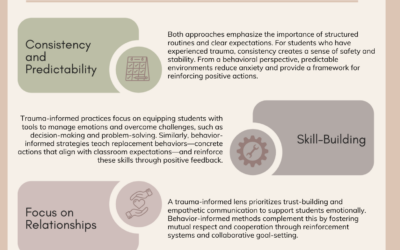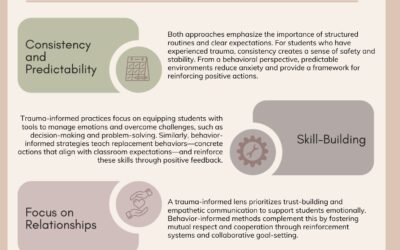Transitional Kindergarten (TK) is growing fast across the country—and while it’s exciting to welcome younger learners into elementary schools, TK teachers are navigating some real challenges behind the scenes.
If you’re teaching TK, you already know this isn’t just kindergarten with younger kids. These four-year-olds come with unique developmental needs, emotional regulation skills still in progress, and a lot of energy. And with the state expanding access to TK for all 4-year-olds, more teachers are being asked to jump into this important work—often without the preparation or support they really need.
Here are some of the biggest challenges TK teachers are facing right now:
1. The Behavior is BIG—and the Tools Aren’t Always There
Many TK teachers are finding that behavior is one of the biggest hurdles.
You’re working with children who are still learning how to take turns, how to express frustration, how to sit in a circle for more than 30 seconds. Emotional outbursts, running from the classroom, separation anxiety, and frequent meltdowns are part of the daily routine—but teachers aren’t always given training in how to handle it all.
TK classrooms need explicit teaching around behavior and self-regulation, and that takes time, strategy, and support. Without the right tools in place, teachers can feel more like crisis managers than educators.
2. A Shortage of Qualified, TK-Ready Teachers
With schools pushing to expand TK across the state, there’s a major need for more early childhood-trained teachers. However the requirements for new TK teachers are steep—many must have either 24 units of early childhood education, a child development permit, or documented experience working with preschool-aged children.
That’s creating a hiring bottleneck. Districts are scrambling to find teachers who not only meet the credentials but also have the specific skill set needed for this unique age group.
The result? Many TK classrooms are being led by amazing teachers who want to do a great job—but haven’t been given the training or support to thrive.
3. Emotional Exhaustion & Burnout Are Very Real
Teaching 4-year-olds all day requires stamina. It’s physically and emotionally demanding, especially when you’re managing challenging behaviors on your own. Add in the pressures of planning developmentally appropriate lessons, meeting early academic benchmarks, and trying to build a structured environment—and it’s no wonder many TK teachers are running on empty.
In a recent study, 81% of California educators said their salaries aren’t keeping up with the cost of living, and 84% can’t afford to live near where they teach. That kind of stress seeps into the classroom and makes it even harder to be present, patient, and consistent with young learners.
4. There’s a Gap Between What TK Is and How Schools Are Supporting It
Let’s be honest: TK is not just “the new kindergarten.” These are preschool-aged kids with preschool needs. But not every school or district has adjusted expectations, support structures, or training to reflect that.
TK teachers often find themselves stuck between two worlds—expected to meet kindergarten-level accountability, but without the support systems early education teachers typically have. It can feel isolating, and it can make it harder to do what you know is best for kids.
So What Can Help?
Teachers need more than encouragement—they need real tools and training tailored to managing behavior, building routines, and creating calm, connected TK classrooms.
Things like:
- Behavior strategies that work for 4-year-olds (not 2nd graders)
- Visual routines and clear expectations that stick
- Support from admin that recognizes the unique challenges of TK
- Peer communities that share what’s actually working in real classrooms
If you’re a TK teacher, know this: You are doing incredibly important work. You’re laying the foundation for a child’s entire school experience. But you shouldn’t have to do it alone—or without the support that matches the job.
The vision for TK is a good one—but we have to support the teachers making it happen.





